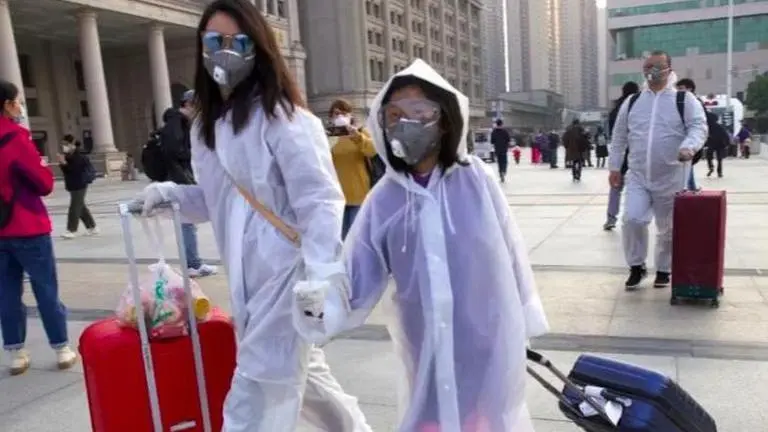Updated 27 December 2022 at 07:06 IST
China to scrap COVID-19 quarantine protocols for overseas travellers from Jan 8
“New coronavirus will linger in nature for a long time to come,” Chinese Health Commission said in a statement on Monday. “It has become much less virulent."
- World News
- 3 min read

China plans to scrap the nation's COVID-19 quarantine requirements after three years of travel curbs on international arrivals since March 2020. Beijing is likely to do away with quarantine for international arrivals from January 8, 2023. The restrictions were introduced by the Chinese National Health Commission to curb the incidence rate of imported coronavirus cases within its territory of 1.4bn population as part of a wider clampdown under the PRC's strict Zero COVID policy.
As of January 8, however, overseas travellers will no longer be mandated to quarantine but will be required to obtain negative COVID-19 test results within 48 hours of departure, the Chinese National Health Commission announced in its new update published on December 26, Monday.
Currently, China mandates eight days isolation for tourists entering the country from abroad.
Of these, as many as five days have to be spent in isolation at government-designated quarantine hotels, or a central facility. The rest of the three days can be spent at home while adhering to rules that curbs all nonessential movement.
Advertisement
China's tourism had taken a 26% hit due to the curbs since 2020. The relaxation in quarantine requirements are expected to boost the country's tourism revenue.
Coronavirus has become 'much less virulent': NHC
The National Health Commission of China noted in a statement that since the outbreak of the novel coronavirus, Chinese President Xi Jinping's Communist Party [CPC] has attached great importance to the prevention and control of the respiratory disease.
Advertisement
The government comprehensively strengthened measures for the prevention and control of COVID-19 and put in place the institutional mechanisms, strategic principles, objectives, tasks, and work requirements for coronavirus control.
But due to the "change of the epidemic situation," the popularisation of COVID-19 vaccination, and the virus mutation being on the lower pathogenicity, the resulting disease appears to "gradually evolve into a common respiratory infectious disease."
The NHC downgraded the preventive efforts of COVID-19 from the highest level to the second highest—from "Class B and A control" to "B and B control".
Credit: AP
“The new coronavirus will linger in nature for a long time to come,” the statement of the Chinese Health Commission read on Monday. “It has become much less virulent than before and the disease it causes will gradually turn into a common respiratory disease.”
China's ease of the travel advisory comes at a crucial phase of the fresh bouts of cluster outbreaks of COVID-19, as scientists estimated that the mutated virus could mount close to 1.3 and 2.1 million deaths. London-based global health intelligence and analytics firm, Airfinity, predicted that if the Chinese administration scrapped its draconian zero-COVID policy, millions will die due to the contraction of the highly contagious respiratory ailment.
"Mainland China has very low levels of immunity across its population. Its citizens were vaccinated with domestically produced jabs Sinovac and Sinopharm which have been proven to have significantly lower efficacy and provide less protection against infection and death," Airfinity's analysis stated.
"As a result of these factors, our analysis shows if mainland China sees a similar wave to Hong Kong's in February, its healthcare system could be pushed to capacity as there could be between 167 and 279 million cases nationwide, which could lead to between 1.3 and 2.1 million deaths," it added.
Published By : Zaini Majeed
Published On: 27 December 2022 at 07:06 IST

